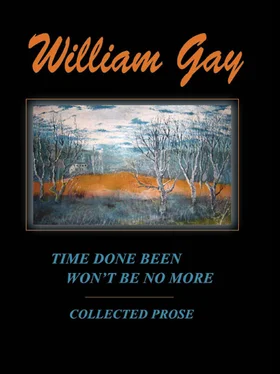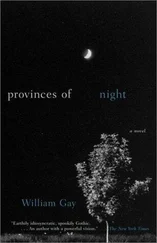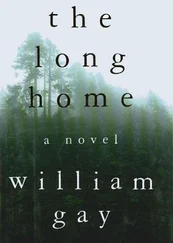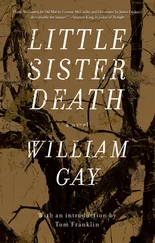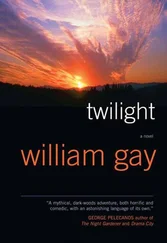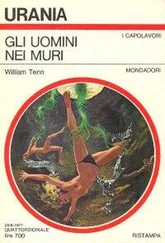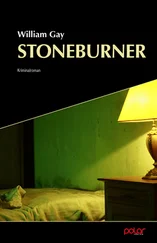Of course there were other songs on the album, and sure enough, they were all great. There was even a song that evoked Sara, a Girl from the North Country, where snowflakes fall and the wind hits heavy on the borderline, a girl with hair that hung long and rolled and flowed all down her breast. Of course, more properly this was the East, not the North, but to the heart, the points of the compass are not only useless, but irrelevant.
In the fullness of time, “Don’t Think Twice” showed up on all the jukeboxes. Not by Dylan, but by Peter, Paul and Mary, who’d made it a moderate hit. Every bar and restaurant we went to, I rolled a lot of change down the throats of jukeboxes.
I didn’t notice that Sara was becoming much vexed with the song until it was too late. I had suspected something was amiss. Long silences had crept into conversations that previously held no space for them. I would glance at her, and she would be watching me in a sort of speculative way. Perhaps our souls did not interlock as perfectly as we’d thought.
I’m sick of that damn song, she finally said. And I may have misjudged you. Your taste. He can’t sing, and not only that, but he’s not a poet, the way you say he is. It’s ridiculous, that rooster crowing at the break of dawn crap. Does he assume everyone owns a rooster? I’ve never even seen a rooster. And he’s always walking down those long lonesome roads. It’s just sentimental bullshit.
I was outraged. Sentimental was the kiss of death, bullshit was even worse. Her own taste was now being called into question. It’s not sentimental. Romantic, maybe, but not sentimental.
Romantic sentimental narcissistic bullshit. You only like it because it’s the way you think. Or the way you’d like to think. And it’s not only that. He’s got into your head. You’ve gotten too far into this stuff, and you’ve let him into your head. It’s warped your whole philosophy.
My philosophy? Well, this was a hell of a note. Here I didn’t even know I had a philosophy, and the damned thing was warped. Broken before I even had a chance to use it. I tried to protest. This wasn’t another girl. It wasn’t another guy. It was a song, and I should be able to turn this thing around.
If you’d think about it, I said, if you could change your mind and stay.
Her eyes went cold. She was receding already, accelerating through the red shift, a girl from the North Country seen through the wrong end of a telescope. I had inadvertently paraphrased a line from the song, and naturally she’d recognized it.
Stabbed in the heart. Here on the dark side of the road. The future yawned before me. Years of the Navy to go, I was barely out of the starting gate. Our lives together forfeit. Our house unbuilt, our children unconceived. Nothing to do, nothing to say. Except goodbye’s too good a word, babe. So I’ll just say farethee-well.
Orders had come through; my ship was leaving New York. It was cold the morning we got underway. Rain, mist off the sea like pale smoke. Sara’s father came aboard to see me off. We stood awkwardly on the fantail, the sea choppy, the ship rocking against its lines. He was glad to see me go. He had never trusted my relationship with Sara, never trusted the breakup to last. He’d never trusted me. He asked prying questions, he watched me all the time, he stood with his ear pressed against Sara’s bedroom door when we were in there, you could hear him there breathing.
He’ll turn on you, he told Sara. They persecute Jewish people in the South.
I hadn’t known that.
They even lynch them. They’ve done that in Georgia.
I hadn’t known that either. I had never been to a lynching, never known anyone who had.
For some odd reason he’d brought his old duffel bag from World War II. He handed it to me with the solemnity of ceremony. I want you to have this, he said. I accepted it. It was heavy and I wondered what it was. Luger salvaged from the battlefield? The severed head of Hitler? Live hand grenades unpinned? A bomb with its clockwork whirring?
It was grapefruit. They were enormous. They looked like heavy pink bowling balls.
These are not your ordinary grapefruit, he said. These are expensive gourmet grapefruit. I hope that you can appreciate their quality. I hope you enjoy them. You can share them with you little friends.
I plan to, I said.
He took my hand again. He clasped it between both his own. The steel deck was throbbing through the floors of our shoes. His eyes were bulbous with the pleasure of containing so much joy.
Good luck on your journeys, he said.
And he went away, stumbling down the gangplank. My little friends were not terribly interested in grapefruit, gourmet or otherwise. They were inclined to toss them into the sea. Making a little game of it, trying to sink a floating grapefruit with a hurled grapefruit. For some reason I folded the duffle bag and stowed it under an arm. The duffel bag of the father of the girl from the North Country. The grapefruit began to drift back toward the shore, back toward Manhattan. Where I was not going.
The towers of New York reared above the cold choppy water. Manhattan was stamped against the horizon like a mirage, like a palace desire had conjured.
The grapefruit drifted toward the girl from the North Country as if homing devices were embedded in them. Look out your window, babe, and I’ll be gone. Fare-thee-well.
Down through Cape Hatteras to the Panama Canal. Storms lay on the ocean. It seemed always night, always cold, everything felt wet with salt spray, everything tasted of sea salt. Seasick, homesick, heartsick for the girl from the North Country. Her image holographed in my memory, the taste of her mouth still on my tongue. Sick for the Village and espresso and the street freaks and poets, for Liam Clancy and Maria Muldaur and Mississippi John Hurt.
People had told me New York was cold and heartless. They had lied. I’d been invited into folks’ homes and slept in their beds, ate at their tables. I’d had good times and interesting conversations. I had smelled Sara’s hair, enjoyed soft flesh without the exchange of filthy lucre.
Now I was bound around the horn to San Diego. Where these things did not live. Where everything was sand and plastic palm jarheads who wanted nothing so much as to take you out into the alley and kick your sorry ass. Where merchants with cash-register eyes stood in the doorways of their jewelry stores and tailor shops and beckoned you to enter. Come in here, sailor. Easy weekly payments. Get an engagement ring for that girl back in the old hometown. A $20 watch for only a hundred bucks. Handmade suits of Italian silk that fit as if they’d been handstitched in the rain forest by spider monkeys.
And the men who cruised the bus stops like predators in late-model Volvos and Austin Healeys. In their sunglasses and golfing caps. Hey there, sailor, want a lift? How far are you going?
Nowhere near that far, good buddy.
And, oh my God, I’d just remembered. The drinking age in San Diego was 21, not New York’s youth-accommodating 18.
The ship rolled and yawed. Folks strapped themselves into their bunks. I couldn’t sleep. I lay and thought about what Sara had said: You’ve let him into your head.
Well, I’d concede that. But there was a precedent for it. Everyone has folks in their head. Already I had a few tenants up in those attic rooms. James Dean, Thomas Wolfe, William Faulkner. Flannery O’Connor had a lifetime lease, paid up forever. Faulkner had Melville and Conrad and Joyce. Even Dylan had Woody Guthrie and those beat poets and the French symbolists. And Little Richard. Woody had Joe Hill and Jesus Christ and maybe Abraham Lincoln. Lincoln had the founding fathers.
So what if I gave Dylan a room. He’d be the only musician. Always room for one more, just another towel in the bathroom, another place setting at the dining table. I could give him the room with that little gallery where Carson McCullers used to sit in the twilight and watch the violet darkness seep into the soft Georgia landscape of her memory.
Читать дальше
